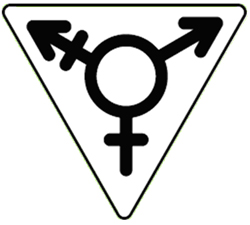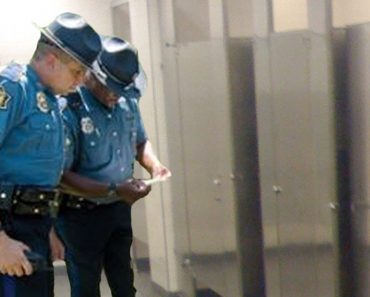I published an earlier revision of this essay first on January 12, 2011 at Pam’s House Blend. I believe the hypothesis of this essay is still true and bears repeating every now and again. A
I work on LGBT community issues, as well as transgender community issues. I have, and will continue to work with LGB and T activists working on issues that effect transgender and LGBT community. From what I’ve learned and experienced within LGBT community, and activism within the transgender subcommunity of the LGBT community, I know why for many of us there is LGBT community activism; I know why for many of us there is transgender activism.
And, I would begin by having us look at Asian-Pacific Islander (API) community activism. There are differences between those of Samoan ancestry and those of Chinese ancestry; there are differences between those Americans who have familial or ancestral ties to Japan, and those Americans who have familial or ancestral ties to Indonesia. But along with differences between ethnic groups that fall under the API umbrella, there are also many similarities and many commonalities. And the commonalities include the discrimination they experience that’s based in racism. Many of those who discriminate against API community members can’t tell a Korean-American apart from a Chinese-American from a Japanese-American; these racists discriminate against all who have gathered under the API umbrella equally because they don’t see any difference between the subcommunities of the Asian-Pacific Islander community.
[pullquote]Sociopolitical umbrella communities still exist even if individuals who could define themselves as members of a sociopolitical umbrella community choose not personally to step under a particular sociopolitical umbrella.[/pullquote]For similar reasons, there is a transgender umbrella, and an LGBT umbrella. We have gathered under community umbrellas in part because the prejudice and discrimination we face is based in how those homophobic/transphobic people don’t bother to differentiate between crossdressers, drag queens, feminine gay males, and transsexual women; apart. We have gathered under community umbrellas in part because the prejudice and discrimination we face is based in how those homophobic/transphobic people don’t bother to differentiate between masculine lesbian women, drag kings, and transsexual men. We, in their minds, all are in violation of societal sex and gender norms, so they engage in bigotry and discrimination against those who have gathered under the LGBT umbrella — they don’t see any difference between the subcommunities of the lesbian, gay, bisexual, and transgender community.Everyone who is African-American doesn’t appear to be black. In African-American community, its community members are familiar with the word “passing.” Before the civil rights movements of the ’50’s and ’60’s, many African-Americans who could pass as Caucasians hid their heritage and ancestry. Many others who could “pass” as Caucasian choose not to publicly deny their heritage and ancestry. During the civil rights movement, those African-Americans who could have passed as Caucasian, but chose not to, stood with their African-American peers because African-American community was their community.
Many who are gay, but “pass” as straight, still publicly identify as gay — Even when that subjects those folk to discrimination. Many who are lesbian, but “pass” as straight, still publicly identify as lesbian — even when that subjects those folk to discrimination. Many who are bisexual, but “pass” as straight, still publicly identify as bisexual — even when that subjects those folk to discrimination. And, many who are transsexual, but “pass” as natal men or women, still publicly identify as transgender — even when that subjects us trans folk to discrimination. Sometimes, it’s not about individuals, but about the “we” of community.
[pullquote][N]ot every person who belongs to one of the subgroups that fall under the sociopolitical transgender community umbrella choses to identify as transgender…as a member of the transgender community. It’s equally true that not every person who belongs to one of the subgroups that fall under the sociopolitical LGBT community — such as lesbian and gay persons — chooses to identify as a member of the LGBT community.[/pullquote]With legislative or regulatory language, there is no way protect against discrimination of the gender identity of transsexual people without protecting the gender expression of genderqueer people and crossdressers. When a newly out transsexual comes out in the workplace, protecting gender identity doesn’t protect the gender expression of someone who is still legally not the sex and gender to which these someone’s identify. If an employer defines an person as male, but the gender expression of that person as female, the lack of protection of gender expression means an employer can fire someone in the first year of transition — assuming a transsexual follows the transition standards of the Standards of Care for the Health of Transsexual, Transgender, and Gender-Nonconforming People, Version 7. One cannot separate, for the protection of transsexual people in the workplace, gender identity and gender expression without providing employers a loophole for firing transsexual people early in transition.But not every person who belongs to one of the subgroups that fall under the sociopolitical transgender community umbrella choses to identify as transgender…as a member of the transgender community. It’s equally true that not every person who belongs to one of the subgroups that fall under the sociopolitical LGBT community — such as lesbian and gay persons — chooses to identify as a member of the LGBT community.
And, this is true in other sociopolitical umbrella communities. Not every person who identifies as Chinese-American, Samoan-American, Korean-American, Japanese-American, Indonesian-American, etc. choses to identify under the API community umbrella.
Sociopolitical umbrella communities still exist even if individuals who could define themselves as members of a sociopolitical umbrella community choose not personally to step under a particular sociopolitical umbrella.
The common interest in protecting the gender expression of feminine men (to include feminine gay men), masculine women (to include masculine lesbian women), and all people who choose to stand under the transgender umbrella is probably the most important impetus for why transgender community activism exists. Gender expression is the commonality that binds transgender community and its activists.
And gender expression isn’t just a transgender issue. For example, school bullying of those males who don’t conform to societal sex and gender norms for masculinity are presumed to be gay, school bullying of those females who don’t conform to societal sex and gender norms for femininity are presumed to be lesbian — it’s this kind of bigotry that makes gender expression a broader LGBT community issue.
If sexual orientation becomes a protected class without gender identity and gender expression, then peers and employers can discriminate against or harass males for appearing to those peers and employers as too feminine, or can discriminate against or harass females for appearing to those peers and employers as too masculine. If gender identity and gender expression is protected without protection of sexual orientation, then it won’t be gender expression that will be a tool for firing those not conforming to societal sex and gender norms. It will then instead be that those who don’t conform to societal sex and gender norms will find themselves being defined as gay or lesbian, and that definition will leave them subject to discrimination based on perceived sexual orientation.
It’s advantageous for people to organize under umbrella community designators to address issues related to their commonalities. It’s advantageous for broader communities to focus common issues that effect broad numbers of people because numbers do matter to legislators and regulators. This is a truism for transsexual, genderqueer, and crossdressing people who choose to fall under the sociopolitical transgender umbrella; this is a truism for LGB and T people who fall under the sociopolitical umbrella for the LGBT community.
Umbrella communities are an aspect of community building. Building bridges between large numbers of people who associate themselves with subcommunities in a broad coalition –under sociopolitical umbrellas — means there is a greater pool of activists to draw upon to address common community issues. Broad community formed under sociopolitical umbrellas create opportunity for solving common community issues for the broadest range of community members — to result in the broadest range of legal and regulatory protection for the broadest number of human beings sharing significant commonalities.
Those involved in the practical considerations of drafting legislation and regulations, know that language which just picks addresses the issues one narrowly defined group fails. Just as legislation that protect against discrimination of Chinese-Americans but not Japanese-Americans would leave gaping holes where Chinese-American could be discriminated against because an employer or peer perceived as Chinese-American as a Japanese-American, there are holes in protecting people based on sexual orientation without protecting against discrimination based on gender identity or gender expression. If government or employers designate sexual orientation as a protected class without defining gender identity and gender expression as a protected class, that leaves legislative and regulatory holes that all LGBT community members can fall through the cracks.
And too, language that is not based on broader, umbrella definitions is going to be exploited by people who wish to divide the umbrella communities that share notable commonalities. Does anyone remember the what the happened with regards to the Employment Non-Discrimination Act of 2007/2008? The division of community that occurred didn’t even benefit the gay, lesbian, and bisexual people who were left in the bill when gender identity (to include gender expression) was taken out of ENDA — we still don’t have a federal law that protects based on sexual orientation, let alone one protects on sexual orientation and gender identity and gender expression. Community numbers, and broad community solidarity, when pushing for freedom, equality, and justice — for civil rights — matter.
Transgender activism exists because people in groups that fall under the sociopolitical, transgender community umbrella have common issues that can be addressed by common legislation and regulation. Transgender community members who fall under the sociopolitical, LGBT community umbrella have common issues that can be, and should be, addressed by common legislation and regulation that protects LGBT community members.
And, there are other models of sociopolitical umbrella communities working on common issues — the sociopolitical API community being one example of such a community.
There is a case to be made for transgender community activism, even if a significant number of transsexual people don’t want to themselves fall under the transgender umbrella. There is a case to be made for transgender community activism within LGBT community, even if a significant number of transgender people don’t want to themselves fall under the LGBT umbrella.
Those transsexual people who don’t wish to identify as transgender are not required to identify as transgender — but at the same time, transgender community activists are equally free to push forward on legislation and regulation that addresses the transgender community issues based on the community commonality of gender expression. That these transsexual people don’t want to align themselves with transgender community activism won’t stop transgender activists from working on transgender community issues; it won’t stop transgender community activists from working on LGBT community issues.
The transgender community, as a sociopolitical umbrella community, is here to stay. Its community activists are here to stay too.




Wow. I never knew that the Transgender issue was this heated up until now. Goodluck to you guys.
University of Nigeria
http://unn.edu.ng